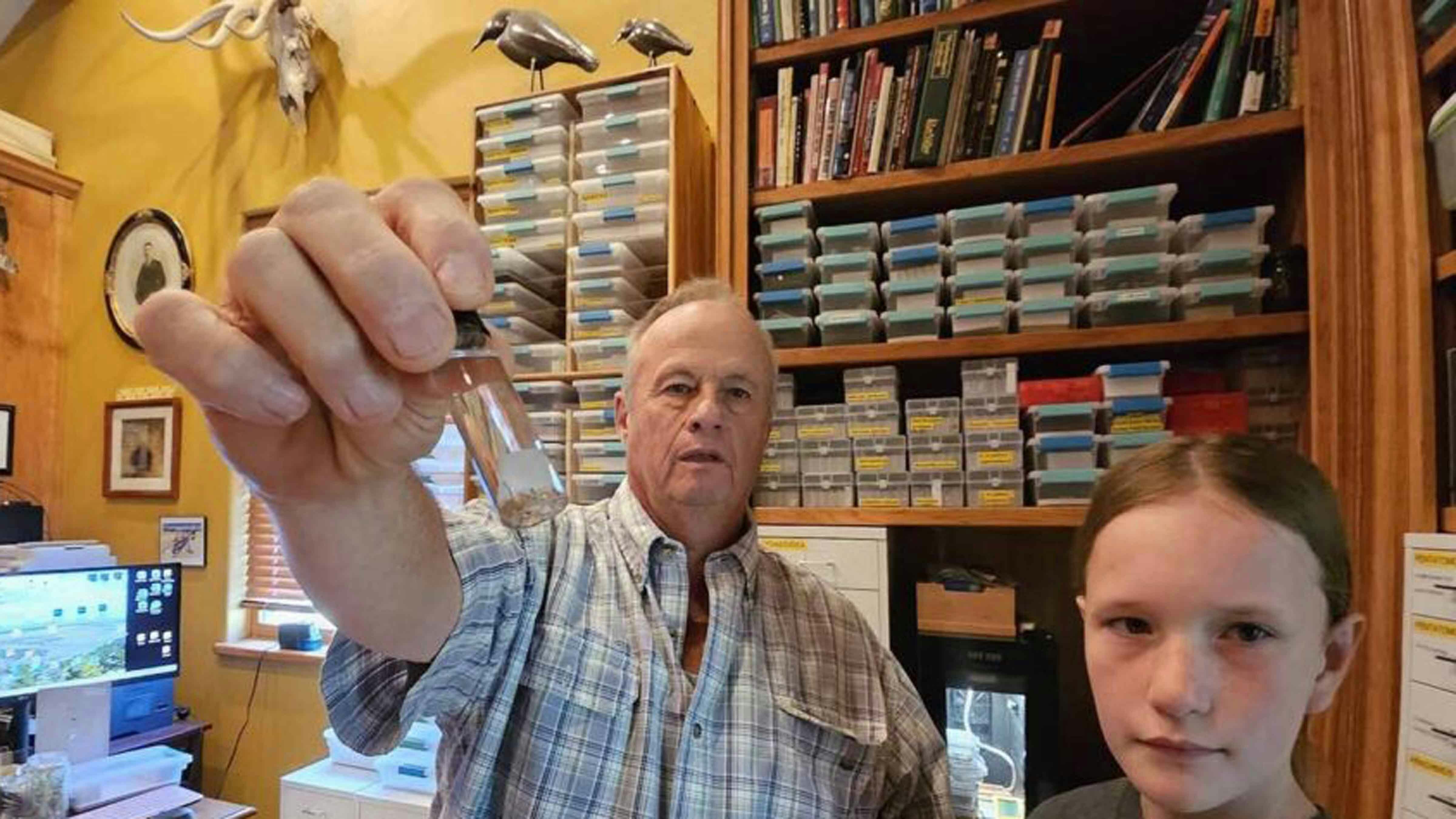EVANSTON — Uinta County School District 1 Superintendent Ryan Thomas can pinpoint the moment he knew students using cellphones in classrooms was a problem that could no longer be ignored.
“It happened toward the end of not last year, but of the previous school year,” he said. "I had an opportunity to sub in one of our advanced math classes (at Evanston High School). In the class there was a sign from the teacher that said, ‘No Cellphones’ on the wall.
"I knew that the high school had a policy in place previously that cellphones should be put away during instructional time.”
Thomas observed that despite the school’s policy and the teacher’s sign, a few students had their phones out and on their desks while they worked anyway.
“So I walk back and I say, ‘Please put your cellphones away.’ And these are students that are academically very sound and academically working hard,” he told Cowboy State Daily.
“And what I noticed (was) it was more of a habit that when their cellphone buzzed, they had to look at it, even though they knew they weren't supposed to,” Thomas said. "When I told one girl to put her phone away, she said, ‘Oh man, I didn’t even realize I was looking at it.’ And I believed her.”
Fast-forward to the 2025-2026 school year that just began.
Evanston High School has now implemented a total ban on cellphones during hours of instruction — from the time students step on campus to the time they leave. All phones must be turned off and stowed away for the duration.
That includes lunch on campus, between classes, bus rides and assemblies during school hours.
And EHS isn’t the only Wyoming school to say no cellphones at all.
Cody High School in Park County School District 6 has also implemented a total ban, while many other districts across the state are enacting cellphone policies for their schools.
While distraction is usually cited as the main cause for concern, other issues such as cyberbullying and the abuse of artificial intelligence technology have also been singled out.
“There’s been legislation that gives schools the option of how to handle the cellphone issue,” said EHS principal Scott Kohler. “We really began clamping down on the phones last year. We went bell-to-bell at the high school, meaning no phones in class, similar to what other schools had done.
"Some schools have done what we’ve done, some have done partial and some haven’t done anything. It’s interesting when you look at it. But I think most schools are beginning to put something in place.”
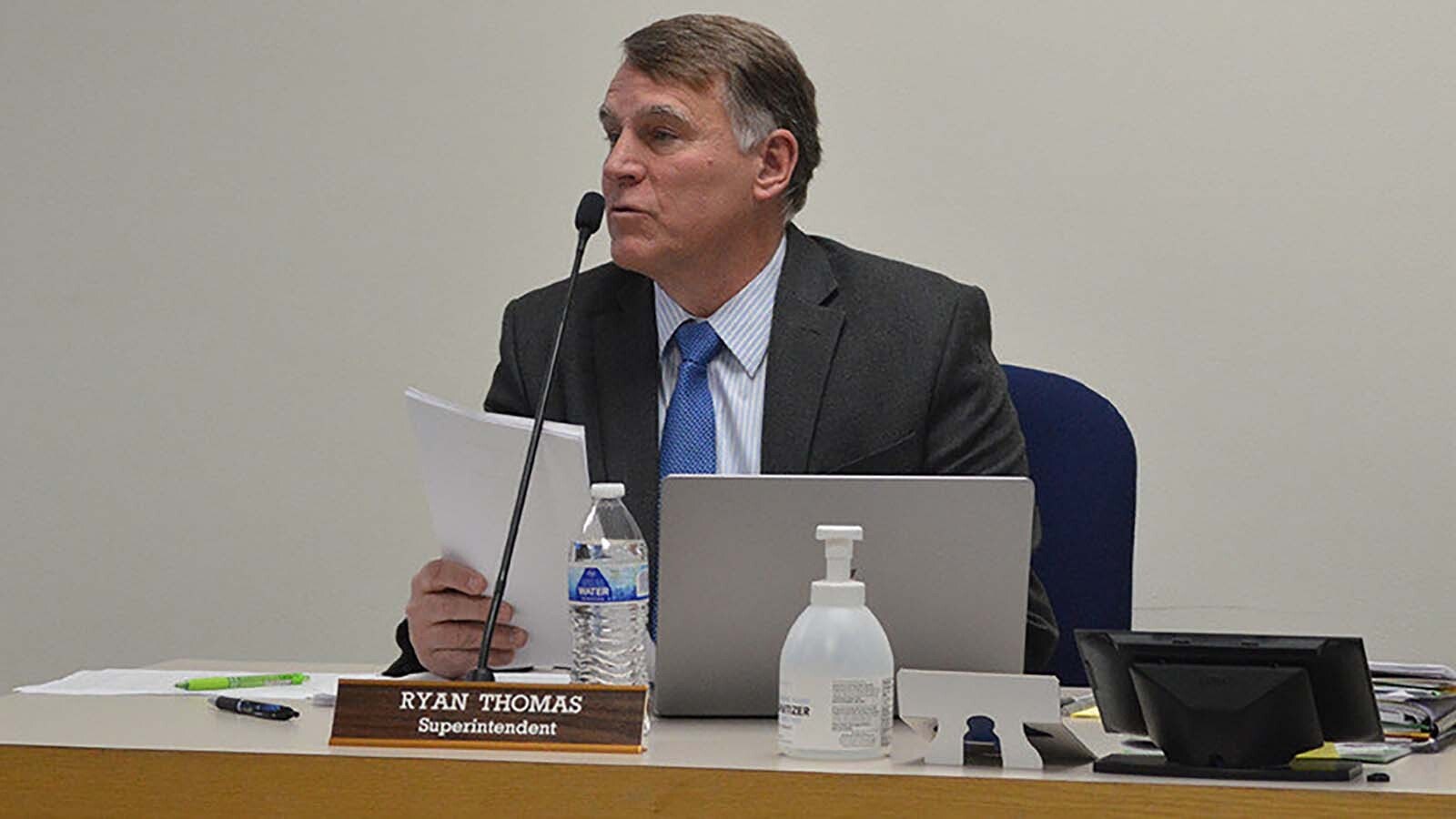
Crafting A policy
Last summer, Thomas met with state Sen. Wendy Schuler, R-Evanston, to work on legislation for a statewide ban cellphone use in classrooms and on school grounds during academic hours.
That legislation eventually became Senate File 21, which died on the Senate floor.
The issues with cellphones and the distraction they cause still remained, said Thomas.
“Anticipating that there would be some legislation, we did have a district statement that basically every principal would have a cellphone policy in their handbook,” he said. “The high school became more restrictive last year."
It wasn’t breaking news that a ban is unpopular with students, but it also hasn’t been universally embraced by parents, either, he said. Some parents want that constant connection with their kids.
“We had some bumps in the road, with some parents who didn’t agree, some students who didn’t agree with that cellphone restriction,” he said.
Thomas also looked at what other school districts were doing nationwide and, after conferring with the nine members of the local school board, decided the district would go no cellphones during instructional time.
“We decided that from the time students step on the bus until the time they step off again at the end of the day, those cellphones should be put away,” he said. “If a student or parent wants them to have them, they can have them in their backpack, in their lockers, in their vehicles.
"But they are not to be on during the school day.”
Asked what the first two weeks of the school year have been like with the new policy in place, Kohler said the answer might not be as dire as you’d expect.
“Overall, it’s been a smooth transition,” he said. “It’s a hard switch (because) it’s a change of habits. I don’t know that anyone really likes this rule, but everyone ultimately understands why we have it.”
EHS English teacher Laura Clarito said the ban really doesn't change anything in her classroom. She's had a no cellphone rule in her class for a couple of years. For her, the change has been in the attitudes of students.
“Since cellphones were disallowed, I have seen more engagement in coursework and more conversation during downtime,” Clarito said. “Kids aren't phone zombies now, they are humans.”
Fellow English teacher Jacob Zufelt said his students aren’t shy about voicing their displeasure with the rule.
“They’ll tell me, ‘It’s not fair’ or ‘You should talk to the school board for us,’” he said. “Personally, I am glad that I don't have to deal with kids on their phones in my class, but I do feel like lunchtime or on the bus would be an OK time to use phones.
"If the new policy is doing anything to decrease cyberbullying and harassment, then that's great.”
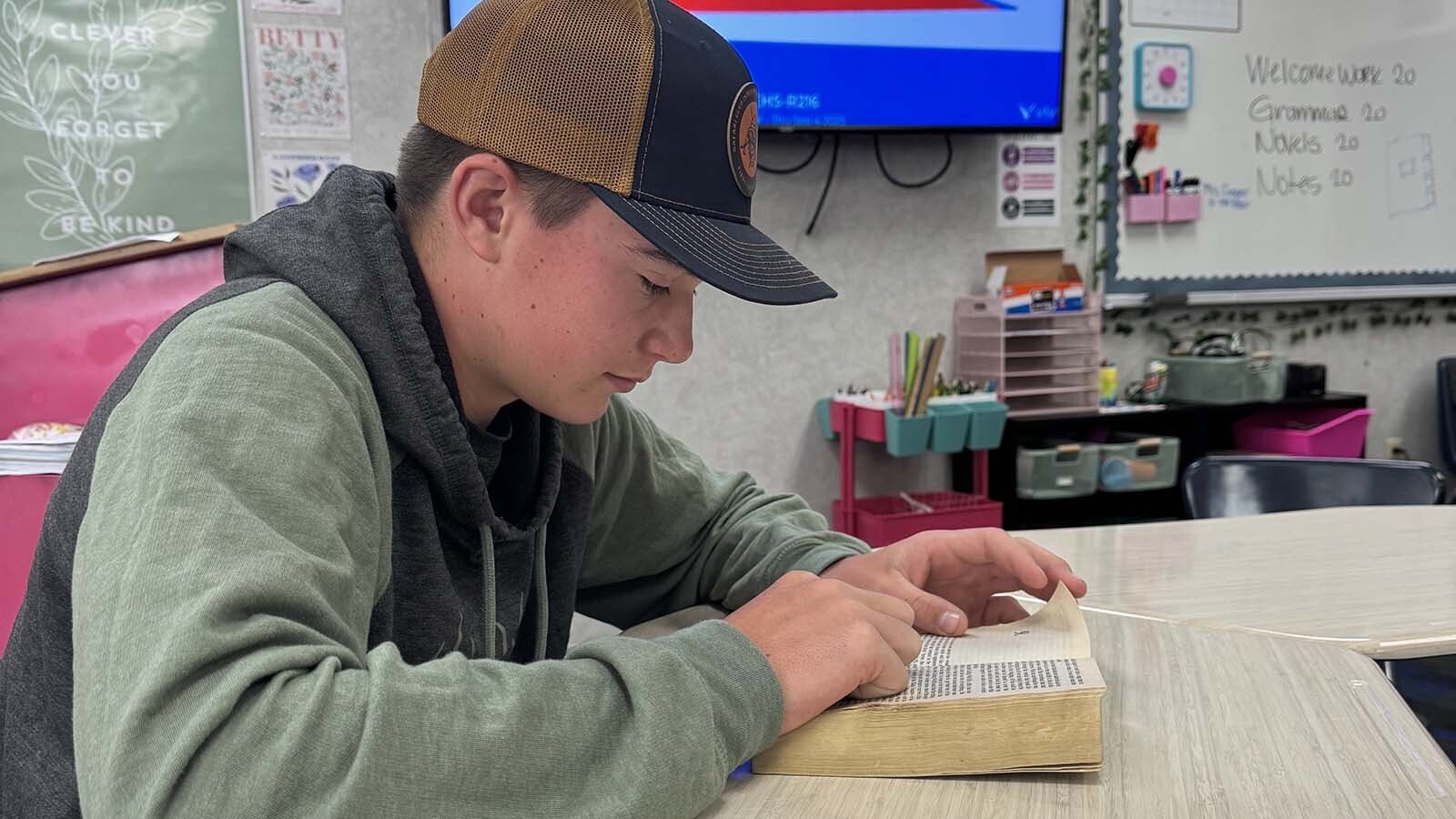
Breaking It down
Some schools collect cellphones from students as they come through the doors in the morning, giving them back when school’s out.
Not at Evanston High School, where students can keep possession of them, but they have to be turned off and kept out of sight.
“The language we have is ‘stowed away,’ which means the phones are put in a certain place and powered off,” Kohler explained. “So, they can put it in their locker, they can leave it in their backpack, they can leave it in their car, they can leave it at home. It can’t be in their pocket or anywhere on their person.”
Some classes have boxes students can store their phones in, and some can even leave them in the office for the day if they choose.
“That’s just a handful of kids,” Kohler said. “But any of those examples are considered stowed away.”
As for enforcement, Kohler said the biggest obstacle is the change of habit because students are so used to having their phones as an extension of themselves that they find it difficult to function without them.
“It’s, ‘Oh, it’s lunchtime, let me grab my phone,’ and they grab it without even thinking,” Kohler said. “We haven’t been hammering them with detentions and consequences just yet."
There’s a progression of measures officials will take if students violate the policy.
“The first step will be the phone will be taken to the office and the kid can pick it up at the end of the day,” Kohler said. "The second step is the phone comes to the office, the parent comes and picks it up.
"If there’s any beyond that, then we look at meeting with the parents and the kids, deciding if it's becoming an insubordination issue.”
Students who forget their phones are in their pockets as they walk in the door, then scrambling to shove them in their backpacks, have become the norm, though they’re catching on quickly, Kohler said.
“Once kids have it figured out, it’s been fine,” he said.
Feedback from teachers and parents has been mostly positive, according to Kohler, though there have been a few issues the administration has had to work through that they didn’t anticipate.
“There have been kids who have let us know they don’t like it, as well as some parents,” he said. “But they’ve all been respectful. A typical kid will tell you that they don’t like it, but they understand why. And with the parents, it’s been the same.
"Some have called with their concerns, and they’ve all been respectful. Change is hard, and it’s going to take a minute before we’re all on the same page. I will say it’s gone smoother than I anticipated.”
Too Restrictive?
The policy is not without its critics.
Erica Bailey, whose son Jayden is a senior at EHS and a member of the Red Devils football team, said she believes students need to be focused in class, but a blanket ban on cellphones isn’t the answer.
“Teachers know their students best and should be trusted to decide when phones are appropriate in their classrooms,” she told Cowboy State Daily. “There are also times — like on long bus rides for field trips or sporting events — when it doesn’t make sense to restrict access.
"As a parent, safety is my biggest concern. I need to be able to reach my child in an emergency, and sometimes my son needs to reach out to me if he’s struggling.”
At the same time, if students are disengaged, parents also need to ask whether lessons are keeping their attention, Bailey added.
“Phones can be a distraction, but they aren’t the root of the problem,” she said. “We should focus on creating engaging classrooms, clear expectations and balanced policies that put responsibility on both students and faculty.”
Fellow parent Kati Baxter agreed.
“It's horribly inconvenient when I'm trying to communicate to my own kids about appointments or a change of plan that affects them,” she said. “But we're adjusting … and also getting to know the school's secretaries all too well as she relays our messages.”
Thomas said he sympathizes with parents’ concerns, but feels the school office is more than capable of handling calls like these in a timely manner.
“Our message is that a parent can always call the office and we'll get to your student very quickly, and a student that has an emergency can always call home using our phone,” he said. “We've done that forever, and if you need to make arrangements after school, you can do that through the office, or your students can turn their cellphones on after school."
Even if it’s inconvenient and unpopular, cellphones in classrooms became enough of a problem that something had to be done, Thomas said.
“We're trying to be understanding, but at the same time, I think the research is definitely pretty clear that it is a disruption to the day and students are better off to have those off during instructional times,” he said.
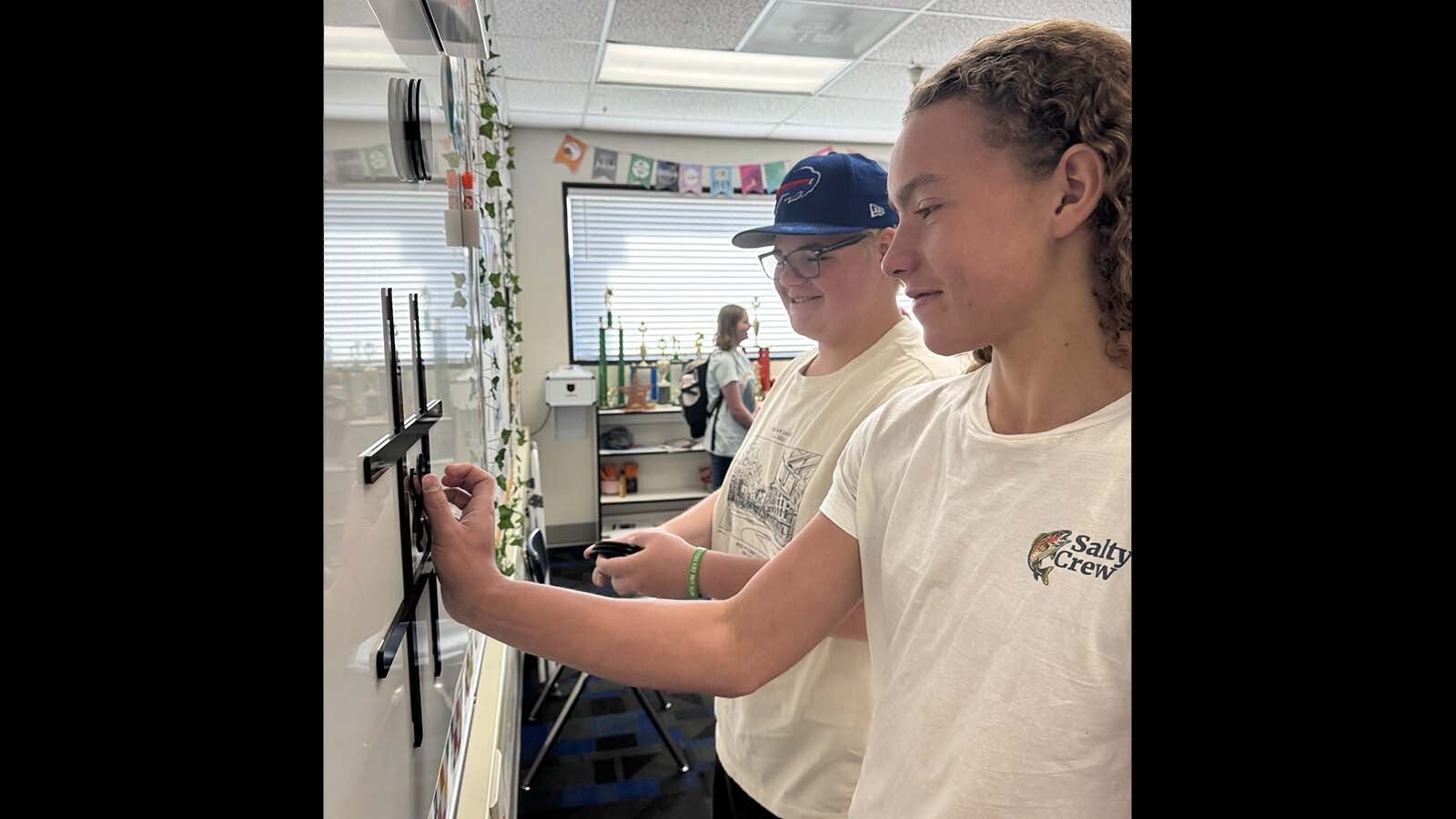
Students Chime In
Student reaction has been decidedly mixed.
For sophomore Seth Morrow, 15, being disconnected from a cellphone is not only a safety issue, it also relates to social acceptance.
“If there was an instance where there was a lockdown, and you were in the bathroom and you weren’t allowed to have your phone on your person, you could be scared and might not know what’s going on, you can’t contact anybody,” he said. “Some teachers might not know where you are, so you could be in more danger.
"And just during lunch, not being able to have your phone — especially if you struggle socially — it’s hard to just sit there and not have anything to do.”
Fellow sophomore Rafael Ballardo, 15, said he understands that cellphones can disrupt learning. What he wants administrators to know is that cellphones can help students reduce stress, especially after a particularly grueling class.
“When the school took that away, I feel like we’re more stressed, because we can’t relax by watching TikToks, or answer Snaps or play video games,” Ballardo said. “Just doing things I enjoy.”
That’s not to say all students feel that way.
“It’s not like it’s a horrible thing,” said Hayden Hasler, 15. “We all kinda need to unplug, because everyone’s always on their phones. All of our parents didn’t grow up on their phones 24/7. I don’t think we need to either.”
“I think it’s kinda nice,” said Karlee Moon, 15. “We don’t have to worry about all the influences of social media, and you have less people on their phones walking down the hallways. It got really crowded when everyone wasn’t watching where they were going.”
Asked if she thought it was a big deal not having her phone during lunch, Moon said not at all.
“You need to talk to your friends,” she said.
On the subject of lunch, Principal Kohler said the EHS lunchroom — once a wasteland of bowed heads and texting fingers — has in the last two weeks been a vibrant, noisy, interactive hub of activity.
“When should kids associate and have fun? Well, it’s when they’re eating together,” Kohler said. “Rather than getting on their phone at lunch, it’s amazing how much noise, and how much visiting we’ve seen just this year alone.
“All of a sudden, kids are talking and socializing with each other. We've had more books being read and checked out of the library. It’s just amazing to see.”
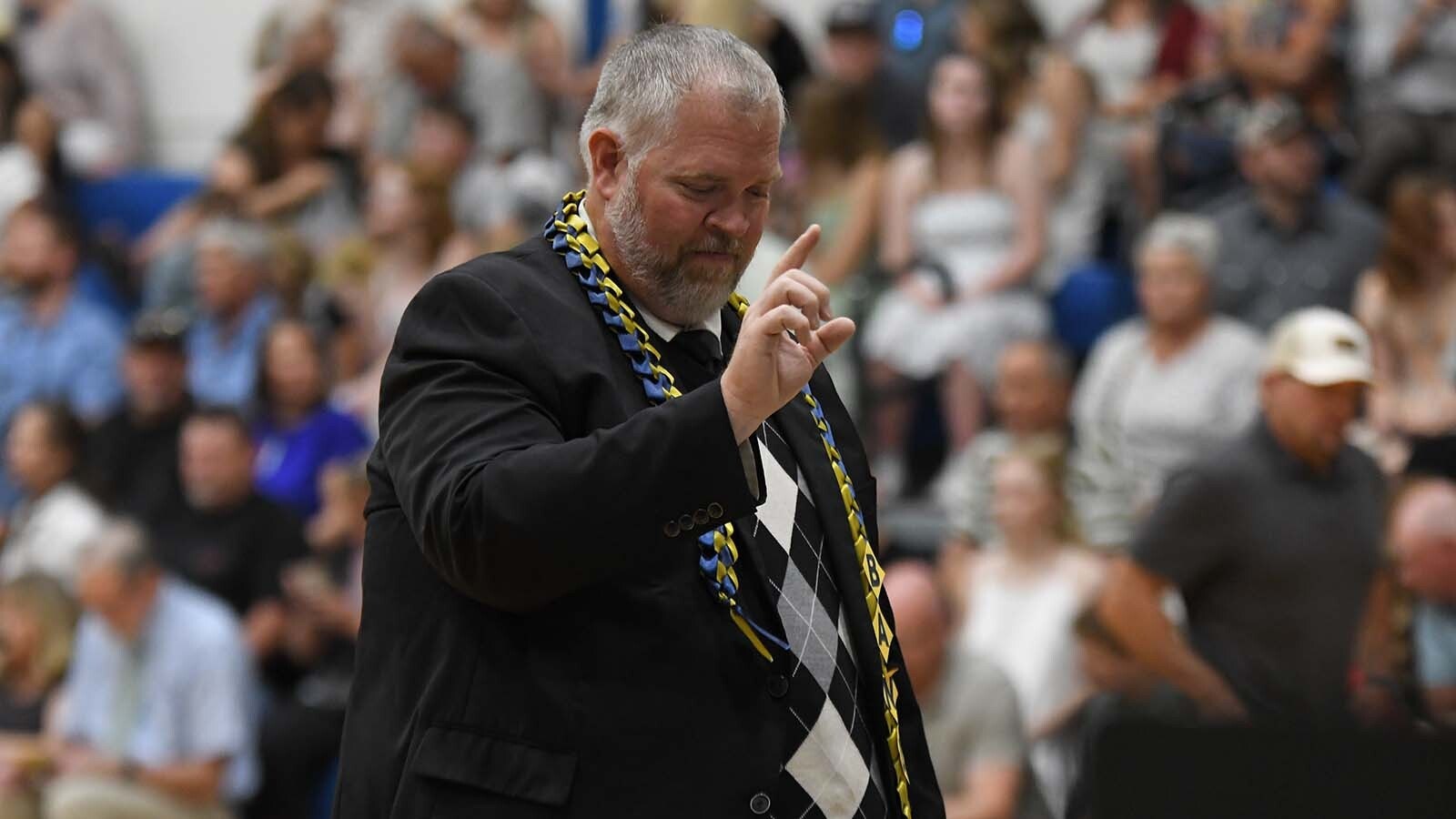
Similar Results In Cody
Cody High School has a total cellphone ban, said Principal Mitch Espeland, who has been just as pleased with the results.
“It’s going really well here,” Espeland said. “We have a pretty strict policy where students are not allowed to have their cellphones from 7:30 a.m. — when our doors open — to 3:20 p.m., which is our last bell."
Unlike at EHS, Cody High students give up their phones to administrators during the day. Knowing they’ll be held, most students don’t bring a cellphone, Espeland said.
Like in Evanston, he said there’s a lot more students interacting with each other.
"I think the coolest thing I’ve seen is, our common areas are really loud this year — students engaging with their friends, with their peers,” he said. “When I go into classrooms, I’m seeing almost 100% engagement in the lessons instead of distractions."
Longtime CHS band director Wade French was initially skeptical of the ban, believing staff would struggle with having to police it. Also, cellphones played a large part in how he taught his classes.
“Being a high school band director, we use phones in class for tuners, metronomes and to record,” French told Cowboy State Daily. “I sometimes would send messages to my band classes regarding announcements and vital class and trip information.
"I also take photos and videos of my classes on the fly to discuss how we are doing and how we can improve. The same was happening during in-class sectionals.”
Much to his surprise, the campus community has seemed to embrace the policy, and students have taken pride in policing themselves.
French has adjusted his curriculum accordingly and, though it’s still early in the game, he’s pleased with the results.
“Our campus is a new place, and it is amazing,” French said. “Students are engaged and working in classes. They are paying attention and asking questions. When given time to do homework in class, they are getting work done and turning it in.
"When that is done they are talking and smiling, chatting with peers instead of looking down or taking a Snapchat."
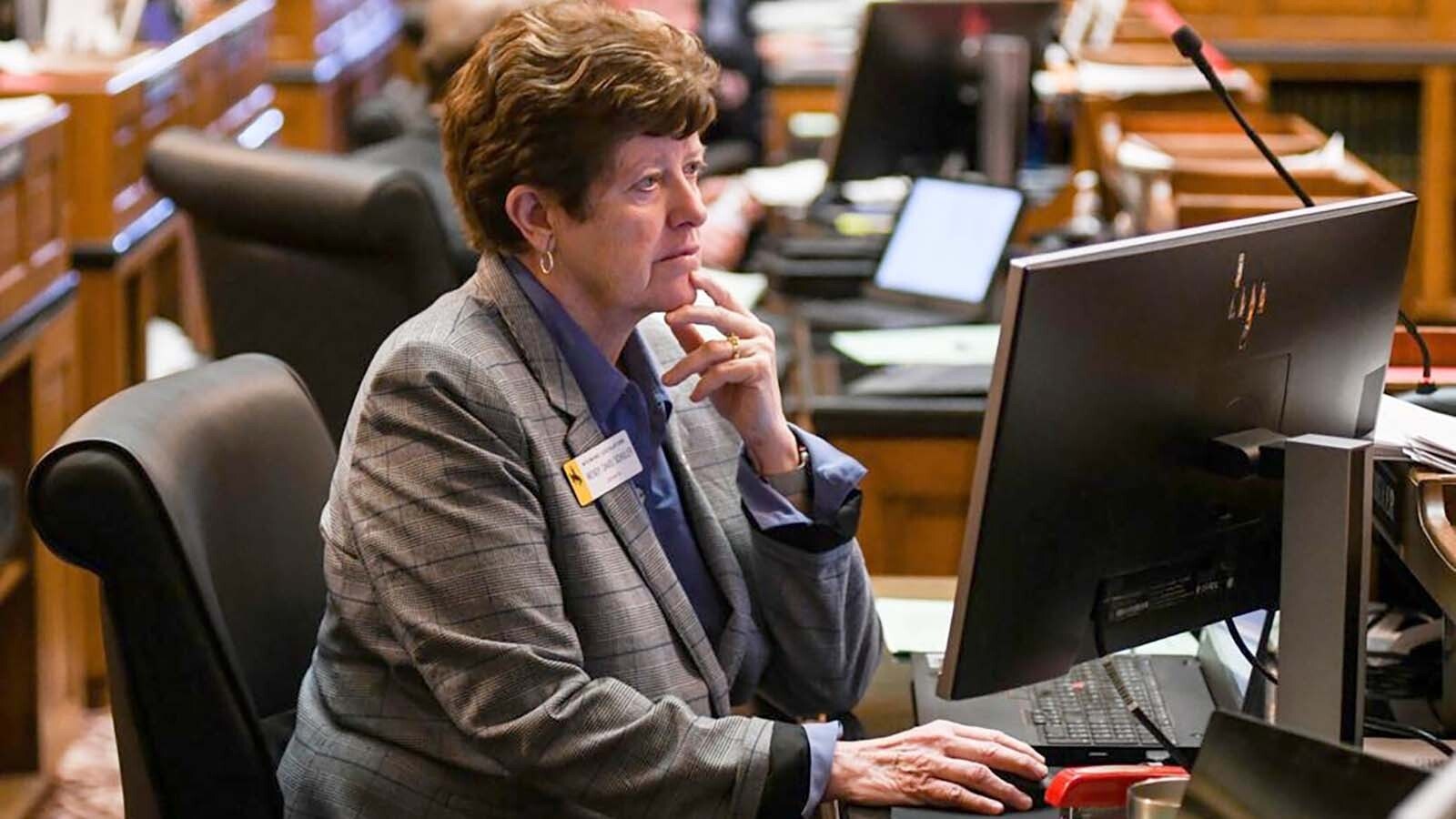
Running It Back
For state Senator Schuler, the failure of SF 21 during the last legislative session only strengthened her resolve to push it through.
“I intend to bring it back,” she told Cowboy State Daily. “There were still some folks that were going, ‘Well, there's some districts that are already trying some things and let's just give them an opportunity to see what works for them.’
"And I said, ‘Well, I understand that we all love local control, and I agree with local control too, but I felt like I had enough flexibility in there that they would still have that.’ But some of the senators didn't agree with me.”
Schuler will tweak the bill to make it even more local-control friendly, getting the idea across that if it's important enough to have a discipline plan in your school, it's important enough to have a cellphone plan.
“And there are districts that don't have any plans thus far,” Schuler said. “They don't have any policies stating what kids can and cannot do with their cellphones.”
A longtime educator, Schuler retired from teaching in 2016. Once elected to office, she began hearing from teachers around her county who spent an inordinate amount of time policing kids with their cellphones.
After reading the book "The Anxious Generation" by Jonathan Haidt about the dangers of phone-based childhoods, Schuler decided to take up the cause.
“Once I'd read the book about just the increase in teen suicide and cyberbullying — and there's so many negative things with social media that have come out of cellphones — it just opened my eyes,” she said. "I thought, ‘Wow, we've got to do something, at least for instructional time.'”
Schuler said it might be a tough sell to her fellow legislators during a budget session in 2026, but she’ll continue to work on the bill.
In the meantime, she’s pleased that the district where she taught for so many years has become the litmus test for cellphone policy.
“Our district is going a step further, and I hope others do, as well,” Schuler said. “I just want to focus on what’s good for kids, and do what we can to try and help our kids as best we can. That’s the way I look at it.”



